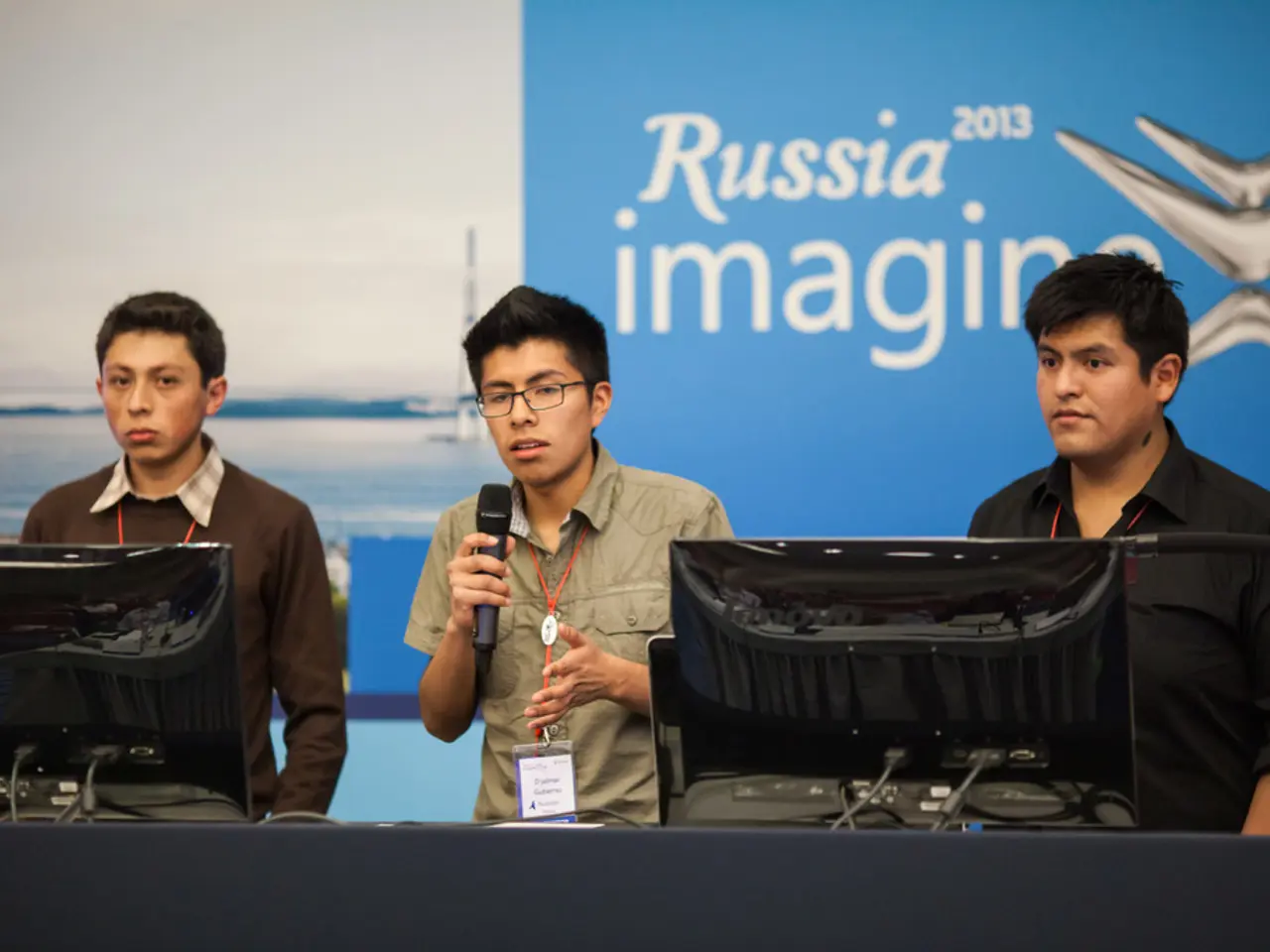AI Transformation Drive in Morocco: Enhancing Workforce Incorporation and Small Business Growth
In a significant step towards the modernization of Morocco's labor market and enterprise development, the North African country has signed a memorandum of understanding with its Ministry of Digital Transition and Administration Reform, partnering with the Ministry of Economic Inclusion, Small Business, Employment and Skills. This partnership, announced during the first National Artificial Intelligence Sessions held in Rabat on July 1st and 2nd, is aimed at modernizing Morocco's labor market and supporting enterprise development.
The partnership specifically mentions the use of artificial intelligence (AI) to aid in professional integration, job market analytics, and vocational rehabilitation. Innovative digital platforms will be developed to analyze labor market trends and provide real-time insights, informing policy and training initiatives. The program will also focus on providing tools and services designed to help micro, small, and medium-sized enterprises (MSMEs) navigate a competitive digital landscape and scale their operations effectively.
Morocco's national strategy to integrate AI into workforce and enterprise development is part of a broader national strategy to future-proof its economy by embedding digital transformation at the core of workforce and enterprise development. The country aims to position itself as a regional leader in responsible and inclusive technological innovation, focusing on ethical and inclusive AI deployment, human capital and job creation, sector-specific innovation and integration, infrastructure and green digital transition, international partnerships and governance, regulatory and research focus, and deploying AI-powered solutions to improve access to employment and re-skilling programs.
The government is implementing a strong ethical national strategy to ensure AI supports sustainable development while addressing risks like misinformation, data manipulation, and social justice concerns. This approach involves collective efforts from public and private sectors, academia, civil society, and international partners to build trust and global coordination around AI governance.
Morocco’s Digital 2030 plan allocates up to 11 billion dirhams to boost the digital economy, create jobs, and train 100,000 young people with digital skills, targeting the creation of 240,000 new jobs by 2030. This includes programs introducing children to AI, aiming to prepare a future-ready workforce equipped for a transforming labor market.
AI is being integrated into critical sectors such as healthcare (improving early diagnosis, prevention, and treatment), agriculture (water resource management and yield enhancement), education (new teaching tools to reduce dropout rates and improve learning), industry, governance, and security. This multilayered approach drives modernization and efficiency gains across the economy.
Morocco is building three AI factories and a green data center, aiming to reduce CO₂ emissions and energy costs by up to 70%. The Green Cloud Morocco initiative is part of positioning the country as a regional hub for sustainable digital infrastructures, thereby combining technological innovation with ecological responsibility.
The collaboration with global initiatives like Current AI to promote secure, ethical, and inclusive AI reinforces Morocco’s ambition to be a leading actor within international digital ecosystems, shaping AI governance and pilot projects in health, linguistic diversity, and governance.
The government emphasizes AI regulation, research, and talent development as pillars to ensure AI serves the common good and national sovereignty. This regulatory framework aims to balance innovation with protection of fundamental rights and societal stability.
In conclusion, Morocco’s national AI strategy is a holistic, ethics-driven plan combining substantial investment in digital skills, sectoral AI applications, environmental sustainability, and governance partnerships to build a more inclusive and resilient economy by 2030.
- The partnership between Morocco's Ministries will utilize artificial intelligence (AI) in business domains, such as professional integration, job market analytics, and vocational rehabilitation for small-businesses.
- The national strategy of Morocco incorporates AI to improve various sectors, including education, career development, healthcare, agriculture, industry, governance, and security.
- Morocco's Digital 2030 plan includes initiatives to develop digital skills among young people, with a focus on AI, aiming to create a future-ready workforce for a transforming labor market.
- As part of its AI strategy, Morocco is collaborating with international partners, like Current AI, to promote ethical, secure, and inclusive AI, positioning itself as a leading actor within international digital ecosystems, shaping AI governance.




